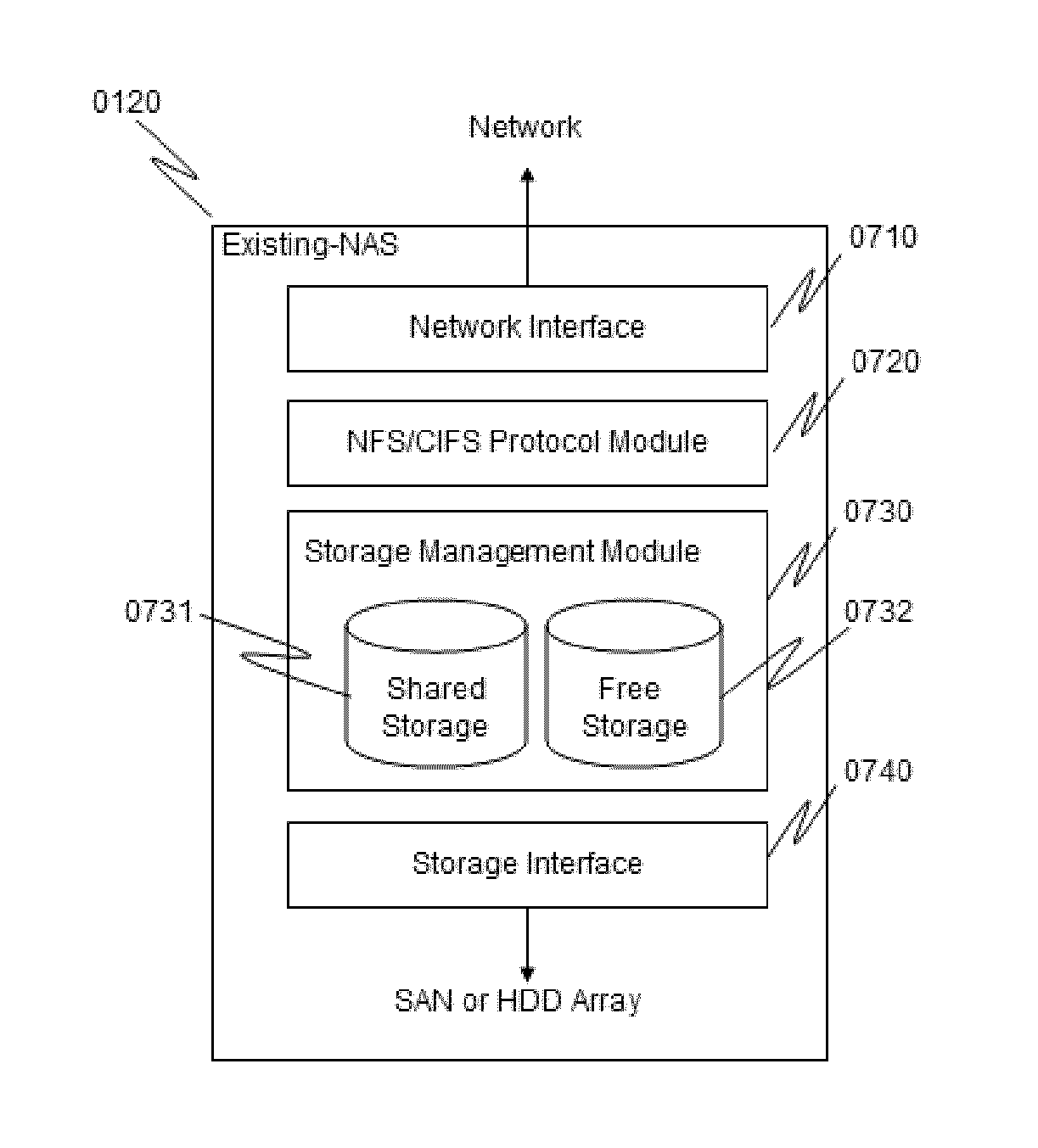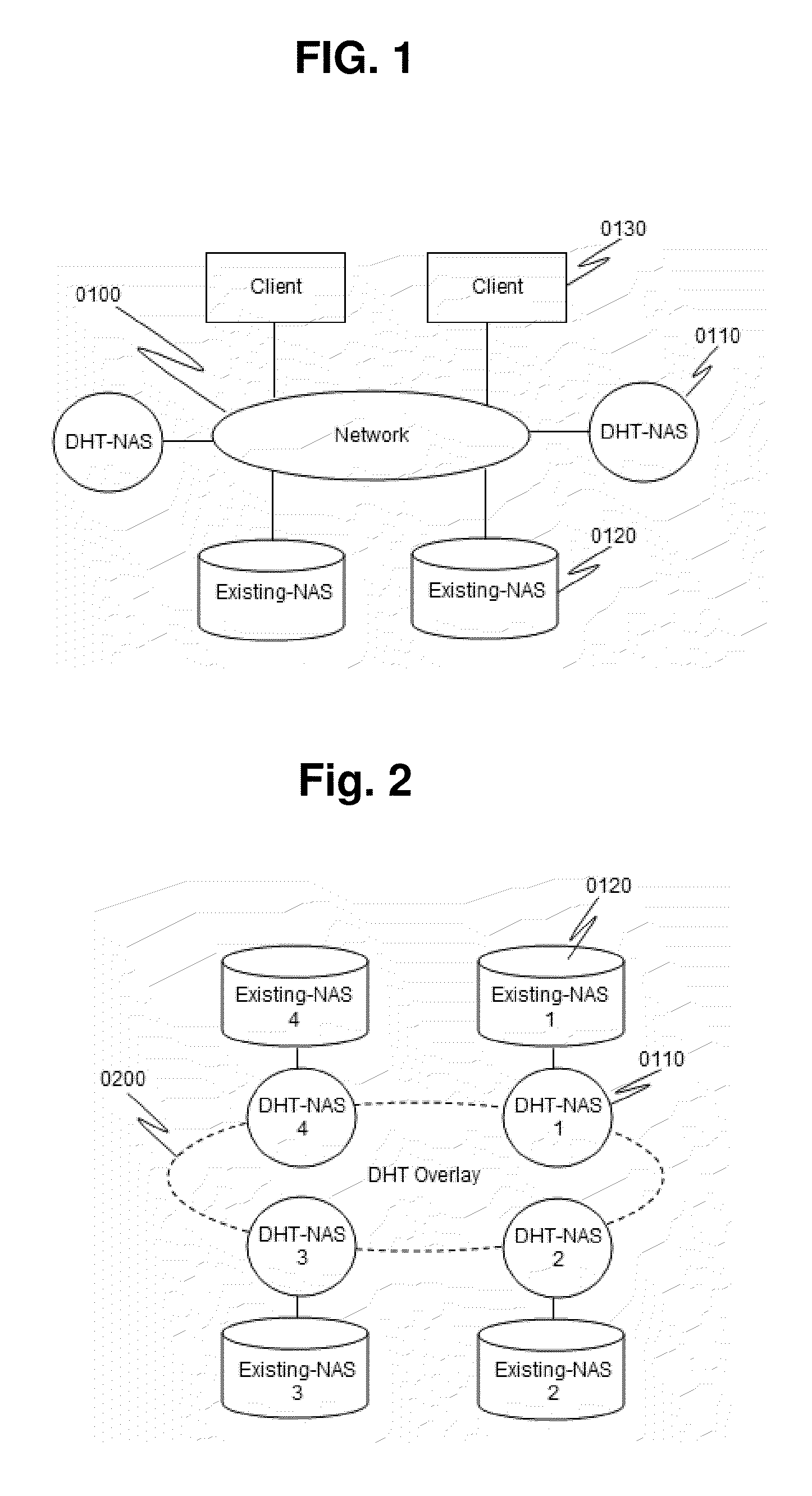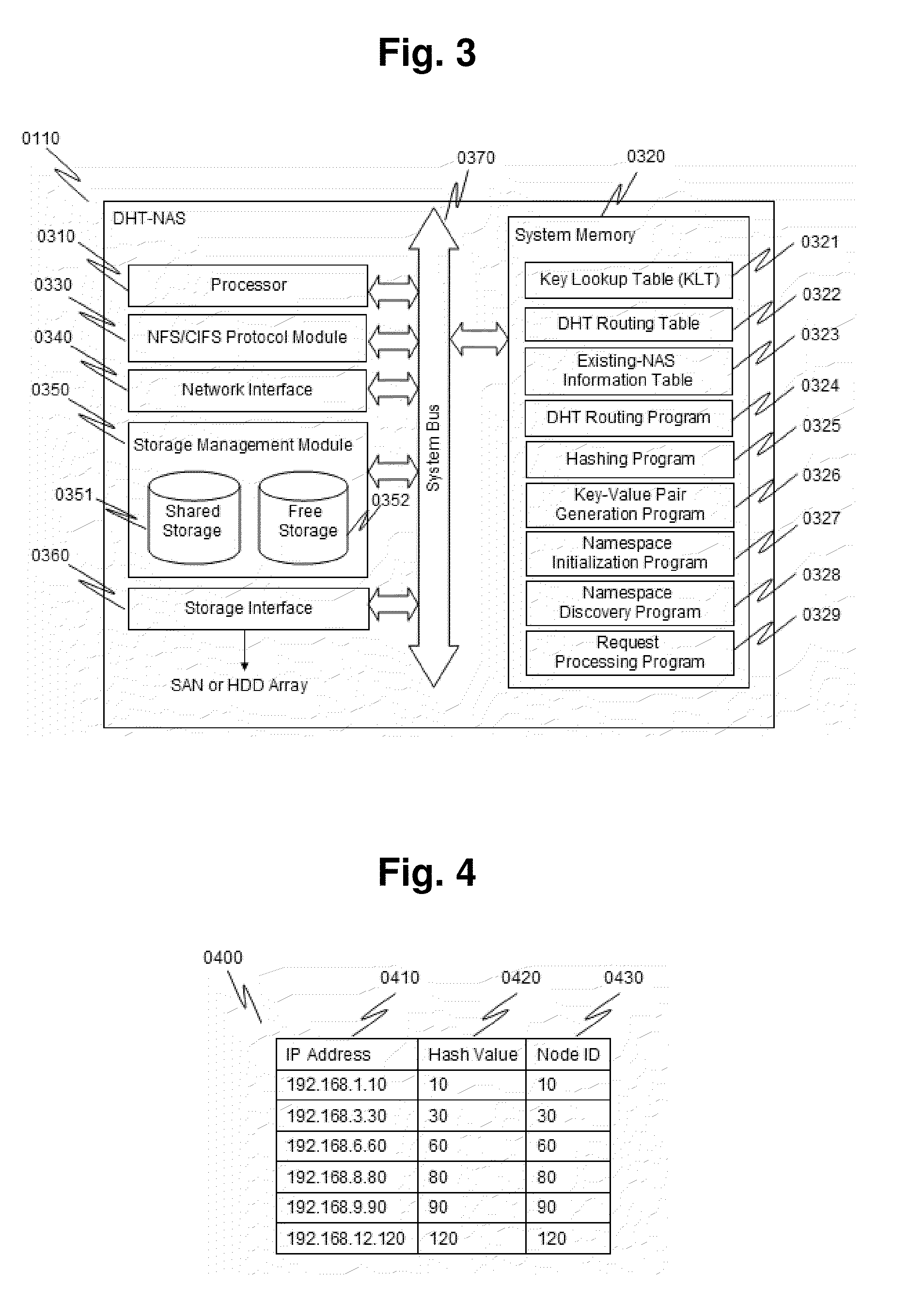Method and apparatus for constructing a dht-based global namespace
a global namespace and namespace technology, applied in the field of methods and apparatus for constructing a global namespace, can solve the problems of system downtime and corresponding interruption to end users, difficulty in sharing information and managing storage, system administrators must spend a great deal of time reconfiguring the system, etc., to achieve the effect of maximizing system scalability
- Summary
- Abstract
- Description
- Claims
- Application Information
AI Technical Summary
Benefits of technology
Problems solved by technology
Method used
Image
Examples
first embodiment
[0092]FIG. 1 is an exemplary diagram illustrating an overall system according to the present invention. The system includes, for example, multiple NAS devices (such as those identified by reference numerals 0110 and 0120) and clients 0130 connected to a network 0100 (such as a LAN (local area network) or WAN (wide area network)). As shown, there are two types of NAS devices: a DHT-NAS 0110 and an Existing-NAS 0120. DHT-NAS devices 0110 are NAS devices that are able to maintain a DHT routing table with partial information of other DHT-NAS devices 0110, and cooperate with each other to form a DHT overlay by executing a DHT routing program. Existing-NAS devices 0120 are traditional NAS devices that do not have DHT functionalities, but already have user files stored in the share folders. A client 0130 is a device (such as a PC) that utilizes the global namespace (GNS) service to access any data in the system.
[0093]FIG. 2 shows a high level overview of a logical system architecture that ...
second embodiment
[0124]FIG. 30 shows an example of an overall system in which different tiers of Existing-NAS devices 0120 are connected to the network 0100. In this example, a Tier1 NAS device (such as an FC NAS) 3010 has better performance than a Tier2 NAS device (such as a SATA NAS) 3020. It should be noted that the system can consist of more than two NAS tiers. The example shown in FIG. 30 is for simplicity of explanation.
[0125]During the DHT overlay construction phase (Step 0810), a hierarchical DHT overlay 3100 is constructed as shown in FIG. 31. A Tier1 DHT overlay 3110 and a Tier2 DHT overlay 3120 are constructed to virtualize the Tier1 Existing-NAS devices 3010 and Tier2 Existing-NAS devices 3020, respectively. There is also a Global DHT overlay 3130, involving all the DHT-NAS devices 0110 in the system. A DHT-NAS device 0110 belongs to only one Tier DHT overlay and the Global DHT overlay 3130.
[0126]FIG. 32 shows an example of the information of Existing-NAS devices 3010 and 3020 gathered ...
third embodiment
[0129]the present invention will be described in the following.
[0130]In the first and second embodiments, the geographical locations of NAS devices are omitted, making it difficult to migrate a file from one location to another, or to create a file at specific location.
[0131]FIG. 34 shows an example of an overall system according to the third embodiment, in which NAS devices 0110, 0120 and clients 0130 are distributed at different locations 3430, 3440. At each location, there is a local network 3410, 3420 where the NAS devices 0110, 0120 and clients 0130 at the location are connected. It should be noted that NAS devices can be geographically located at more than two locations. The example shown in FIG. 34 is for simplicity of explanation.
[0132]Similar to the second embodiment, during the DHT overlay construction phase (Step 0810), a hierarchical DHT overlay 3500 is constructed as shown in FIG. 35. A Local DHT overlay 3510, 3520 is constructed for each location to virtualize the Exis...
PUM
 Login to View More
Login to View More Abstract
Description
Claims
Application Information
 Login to View More
Login to View More - R&D
- Intellectual Property
- Life Sciences
- Materials
- Tech Scout
- Unparalleled Data Quality
- Higher Quality Content
- 60% Fewer Hallucinations
Browse by: Latest US Patents, China's latest patents, Technical Efficacy Thesaurus, Application Domain, Technology Topic, Popular Technical Reports.
© 2025 PatSnap. All rights reserved.Legal|Privacy policy|Modern Slavery Act Transparency Statement|Sitemap|About US| Contact US: help@patsnap.com



